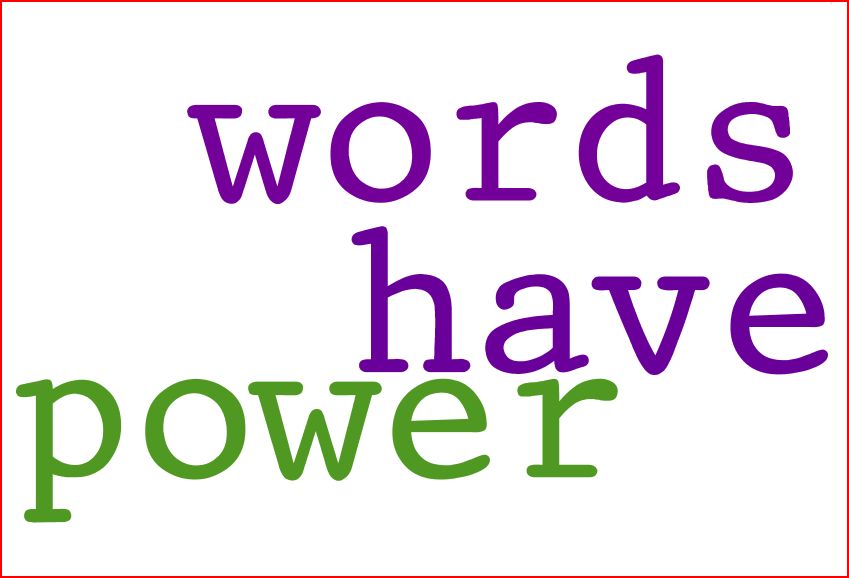Ever found yourself saying?
- “They don’t do their fair share,”
- “He/she blows up over nothing”
- “They’re not even trying”
- “They don’t even care.”
It doesn’t feel good to be blamed, and most people fight back.
- “You don’t even notice how much I do”
- “I blow up because you provoke me”
- “I work harder than anyone else”
- “You have no idea how much I care”
Blame is a game you can’t win!
People get stuck in a vicious blame cycle. The more you blame, the worse you both feel and the worse it seems to get.
When you blame, you start to feel like a powerless victim. After all, since it’s their fault, there’s nothing you can do.
Blame does the opposite of what you want. It actually helps things to stay the same, or even makes them worse. Blame sends out a negative energy which brings you back more negative energy.
Some people blame their partner for their unhappiness yet find themselves in another unhappy relationship. Some people leave a job they can’t stand only to end up in another job they can’t stand.
We think if only the other person or situation changes, then things will be better.
It’s like the man who decided to move across the ocean to get away from everything that was making him unhappy but when he got there, he was still unhappy because he had brought himself with.
Sometimes, instead of blaming, we need to look inside ourselves and ask ourselves these five questions.
-
What can I learn from this? How can I become a better person?
View the situation as something to help you learn and grow. When you blame, you miss the opportunity for self-reflection and growth.
When you get triggered, become mindful and investigate it.
- Does my reaction seem like an overreaction?
- Could it have anything to do with my past?
- What inside of me is causing me to react this way?
Example:
Carol often complained that her husband would retreat from solving problems, and she realized that his pattern was similar to her father’s, who could never make a decision.
She then recognized that just like her mother, she had the tendency to nag and push to get a reaction from her husband, which pushed him further and further away.
When she opened up to him about this realization, he revealed that his defense since he was a young boy was to get quiet and retreat when confronted.
Carol was able to learn that her being forceful and demanding was actually triggering him to be more indecisive.
2. How did I help create this situation? What role did I play?
This doesn’t mean someone else didn’t play a part but take responsibility and focus on your part and what you can change. This will help you let go of the blame game.
When you feel criticized, take a few minutes to acknowledge your part of the problem, however small.
- If “he/she doesn’t do their share,” can you acknowledge how bringing it up every day contributes to their digging in their feet?
- If he/she “blows up over nothing,” can you see how a small comment you made helped set off the spark?
3. How can I think and look at this situation in a different way?
“When you change the way you look at things, the things you look at change.”
View the situation from a different perspective—it’s a powerful tool.
Is there another way to interpret what’s being played out and what’s happening?
Sometimes it’s good to get another person to help you see and interpret the situation in a different way.
4. Am I trying to control this situation too much? Am I trying to make sure things go my way? Do I need to lighten up and let go?
Trying to control the problem—your boss, your spouse, or your circumstances will only keep you more attached to it. The more you “leech” onto a problem, the more it “leeches” back on you.
You will never be able to see the lesson or the solution if you dwell on all the little details about what’s going wrong.
Letting go can be: seeing the good in the other person, accepting a situation for what it is, or seeing the other side of the story.
When we let go of our attachment to what went wrong or what should have happened, we pave the way for more positive results.
5. How can I listen and really try to understand how they are seeing and feeling about this?
Have compassion. When we truly try to understand both sides of the story, the reason why we both get triggered, we have more compassion for ourselves and them.
When you try to see the scenario from their eyes and understand how they view the situation, it’s easier to have empathy and understanding even if you don’t agree.
It helps soften your mood, and there’s more room for conversations that focus on solutions. You’ll both feel much better.
- “If that’s how you see it, I can understand why you are feeling upset.”
- “I’m sorry it happened that way.”
Blaming harms relationships!
It creates distance and disconnection.
It’s obviously difficult to get close to someone or to maintain a close relationship when they have their arm outstretched with an accusing finger.
The act of blaming results in defensive behavior and bitter feelings.
When both people are blaming, it’s a double negative on the relationship.
Here are some challenging questions you can use as your guide.
What action can I take that doesn’t depend on what the other person says or does?
Can I talk about my own experience without blaming the other person?
Can I get curious about understanding how they feel and how they see it, even if I don’t agree?
Can I let go of the need to be right?






